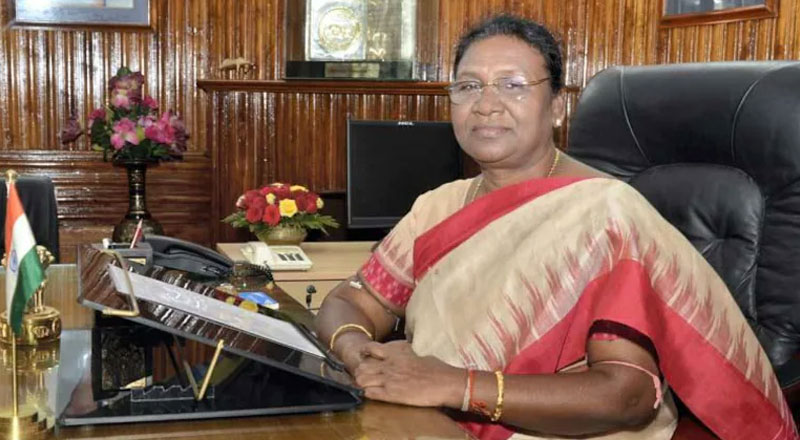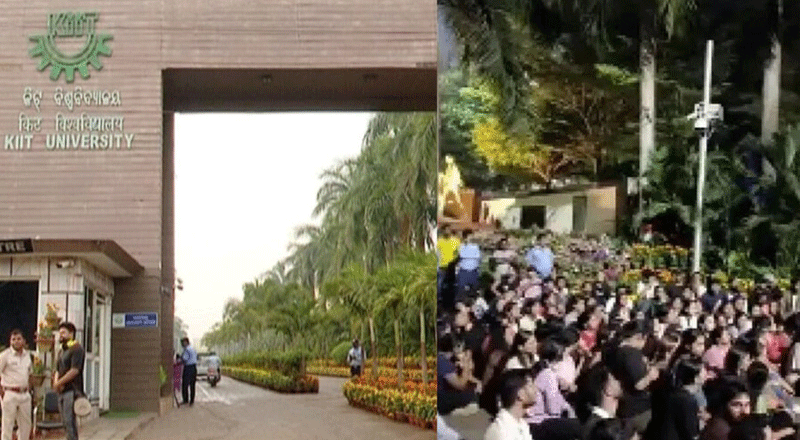In the Yashwant Sinha versus Droupadi Murmu presidential fight, here is how the NDA is causing deeper divisions in the opposition camp across states.
The July 18 presidential election was an opportunity for India’s fragmented political opposition to consolidate and expand its base across regions. But it has seemingly failed to rise to the occasion adequately.
In 2002, the BJP-led ruling National Democratic Alliance (NDA) fielded India’s ‘Missile Man’, APJ Abdul Kalam (a Muslim). During the last election in 2017, the coalition picked then-Bihar Governor Ram Nath Kovind (a Dalit). Given the NDA’s penchant for political import and candidates that mean support even from some of the opposition constituents, a tribal face was a strong possibility this time. And the opposition was expected to be politically astute.
But Yashwant Sinha was fielded by the West Bengal Chief Minister and TMC leader Mamata Banerjee-driven opposition grouping that comprises a reluctant Congress and a sulking Left but is shunned by key non-NDA constituents such as the AAP (Delhi and Punjab), the TRS (Telangana), the YSRCP (Andhra Pradesh), the SAD (Punjab) and the BJD (Odisha).
There is no questioning the individual merit of Sinha, who quit the TMC before accepting the offer. But apart from the fact that he was, till not too long ago, a member of the BJP and had served the NDA as a Union minister in the past and his son, Jayant Sinha, is still a BJP Member of Parliament and a former Union minister, the choice showed a lack of political astuteness.
This was especially when the NDA looked set to have its choice elected — it was only a little short of the halfway mark and could be defeated only in the unlikely case of all non-NDA parties, almost each of them, coming together. Perhaps, this reality was sensed by NCP chief Sharad Pawar, National Conference leader Farooq Abdullah and former West Bengal Governor Gopalkrishna Gandhi. They all turned down the offer to be the opposition’s presidential candidate.
And the NDA did choose a tribal leader: Odisha’s Droupadi Murmu, who has served as Jharkhand’s governor in the past. India has never elected a tribal President, and Pratibha Patil is the only woman to hold the country’s highest constitutional office. Murmu ticks both boxes.
But this was a chance for the opposition to galvanise “neutral” regional satraps in its favour. It could not. Before we get into how the NDA, with its presidential choice, will leave the opposition more wounded, here is a quick look at the actual numbers in the election whose result will be declared on July 21.
India’s President is elected by members of the Electoral College comprising elected members of Parliament and Legislative Assemblies of all states, besides the National Capital Territory of Delhi and the Union Territory of Puducherry. The NDA had about 5.23 lakh of the 10.86 lakh votes. It needed about 20,000 more to cross the majority mark.
Bihar CM Nitish Kumar, part of the NDA, has immediately supported Murmu, despite a record of sometimes not backing the coalition’s choice. His JDU has 22,769 votes. Kumar has had friction with his alliance partner, the BJP. But, to be fair, the NDA was anyway counting on these votes.
ODISHA
A significant dent to the opposition has come from Odisha where Chief Minister Naveen Patnaik not only pledged support for the NDA’s candidate but also, effectively, asked the opposition to withdraw its candidate. His BJD has 31,705 votes.
Patnaik has often voted for the NDA, or helped it indirectly by abstaining from voting in matters of national interest, but Banerjee was banking on him for support and had even invited him to her meeting in Delhi to discuss the opposition’s possible presidential candidates. He did not show up. Murmu’s selection is also part of the BJP effort to make political inroads into Odisha, being ruled by Patnaik for more than two decades.
JHARKHAND
In alliance with the Congress, the JMM rules Jharkhand, a state with a significant tribal population, that borders Odisha. JMM leader and Jharkhand Chief Minister Hemant Soren, who pushed for an opposition’s presidential candidate, may have to back the candidate of the politically opposed NDA. In any case, it’s improbable that his MLAs and MPs, many of them tribals, will prefer Sinha, even though he has been a parliamentarian from the state.
Like Murmu, Soren comes from the Santhal tribe and has deep family relations in Odisha’s Mayurbhanj, her home district. Jharkhand is another state where the BJP has been trying to increase its footprint.





